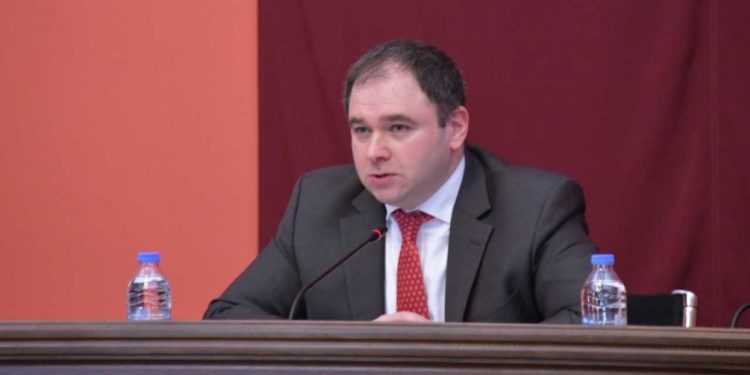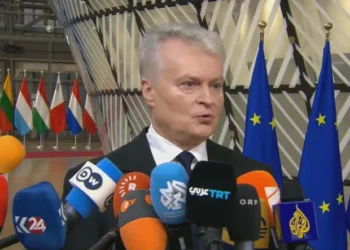The Committee approved the Action Plan for 2023, envisaging the planning and management of foreign policy; facilitation of de-occupation and restoration of territorial integrity; and promotion of the EU and NATO membership of Georgia.
The document provides the scheme for enhancement of the strategic partnership with the USA and bilateral and regional cooperation, as well as the enhancement of the collaboration with international organizations. In 2023, the strategic task of the Committee is to increase the efficiency of the oversight activity, lawmaking activity in view of realization of the foreign policy priorities beyond the country, and the improvement of the communication thereon within the country.
Deriving from the parliamentary openness principle, the document also envisages the improvement of the communication with the civil sector and the media and their engagement in the legislative process and in relations with international partners and donors. The Plan was introduced by the Chair of the Committee, Nikoloz Samkharadze.
The Committee also discussed the Loan Agreement between KfW (Frankfurt am Main) and Georgia. As the reporter, the First Deputy Finance Minister, Giorgi Kakauridze elucidated, the agreement is based on the Protocol signed between Georgia and Germany on November 4, 2021, on cooperation in development sphere; on this basis, KfW allocates the loan of 53 ml EURO to Georgia with the term of 15 years, where 5 years are preferential and the interest rate depends on EURIBOR. The loan is purposed to be consumed on the arrangement of the municipal infrastructural project in Batumi, namely, installment of the water management and sewerage systems, as well as the environmental and natural resources protection. The project also includes the allocation of 2 ml EURO in the capacity of a grant.
The Committee discussed and approved the Draft Law on Labor Migration, introduced by the Deputy Health Minister, Tamila Barkalaia.
“International migration has been drastically intensified during the last decade and Georgia is no exception in these global migration processes. The greatest part of the potential labor immigrants refers to the so-called intermediate agencies, the competence and service quality of which are not yet controlled and hence, such agencies often leave the immense number of the labor seekers deceived, violating their rights,” she explained.
As she noted, the Draft aims at the creation of legal mechanisms to regulate labor migration in Georgia to ensure legal labor migration and prevent illegal labor migration and trafficking, as well as ensure state monitoring on the activity of the natural persons and legal entities related to the labor arrangement beyond the country.
The Draft offers high-quality intermediate services to the labor immigrants, protection of their labor and social rights, and envisages legalization of the activity of the intermediate companies and improvement of registration of the Georgian citizens employed abroad.














